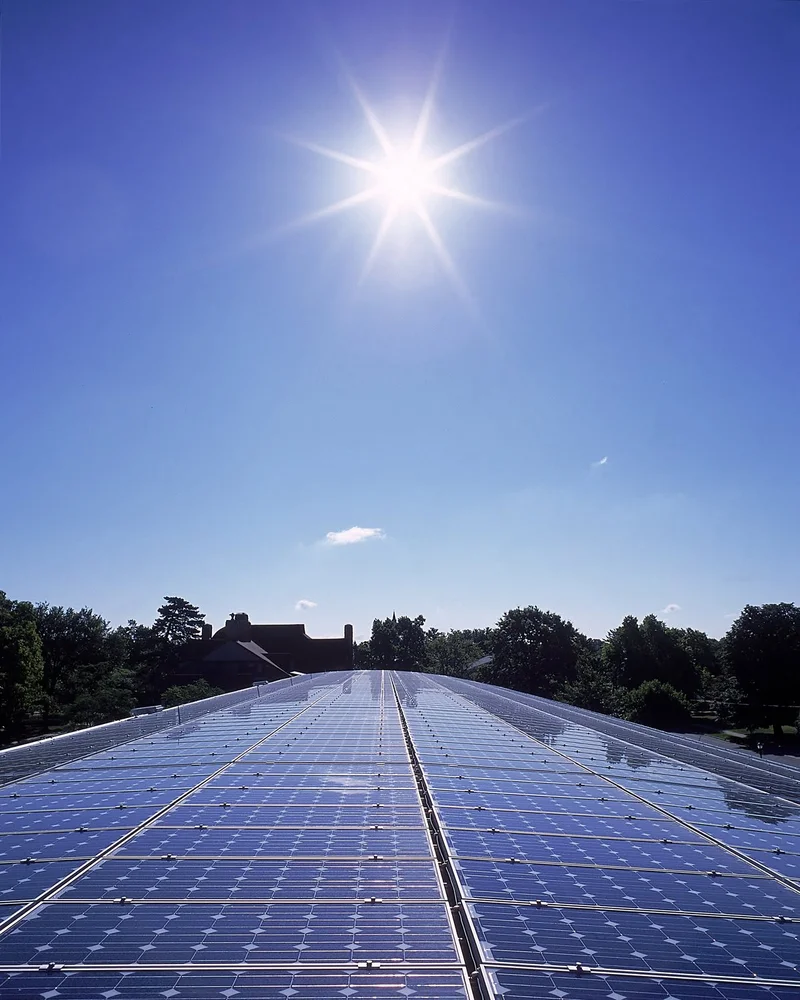Friends, colleagues, fellow dreamers! I've been glued to my screen this week, buzzing with an energy I haven't felt since... well, since they first fired up the Large Hadron Collider! Why? Because the future isn't just coming; it's slamming into us at warp speed, powered by none other than our friendly neighborhood star: the Sun.
We're talking about two paradigm-shifting developments that, when you connect the dots, paint a picture of a world on the cusp of a solar revolution. First, Google wants to put AI data centers in space. Yes, space! And second, Australia is gearing up to give its citizens free solar power for three hours a day. It sounds like science fiction, doesn't it? But I assure you, this is very real.
Let's start with Google's "Project Suncatcher." The core problem? AI is hungry. Insanely hungry. All those cat videos and complex algorithms require massive amounts of energy, and that energy demand is only going to explode. Google's solution is audacious: launch their Tensor Processing Units (TPUs)—the brains behind their AI—into low-Earth orbit.
Why space? Because the sun shines almost all the time up there. Terrestrial solar farms lose power at night, and production dips in winter. Google's space-based data centers would bask in nearly continuous sunlight, receiving up to eight times more solar power than a panel on Earth! Think about that for a second – eight times!
Now, I know what some of you are thinking: radiation! Space is a harsh environment. But Google's engineers have already tested the chips, bombarding them with radiation to simulate years of solar exposure. And guess what? "They held up quite well," says Travis Beals, a senior director at Google. They estimate the TPUs could easily handle a five- or six-year mission. Google wants to build solar-powered data centers — in space
Imagine the possibilities! AI unchained from Earth's energy constraints, powered by the infinite energy of the sun. This isn't just about faster search results; it's about unlocking the true potential of AI to solve some of humanity's biggest challenges. Are we ready for the AI unchained?
But let's bring it back down to Earth, or rather, down to Australia.
On the other side of the world, Australians are about to get a taste of the solar-powered future. Starting next July, households in New South Wales, South-East Queensland, and South Australia will have access to three free hours of electricity every day, thanks to the "Solar Sharer" scheme. The idea is simple: encourage people to use more power in the middle of the day when solar energy is abundant.

Climate Change Minister Chris Bowen put it perfectly: "We want to see the benefits of renewable energy flow to all, even those without solar panels or batteries."
It’s like printing press - once it was developed, the ability to spread knowledge and ideas was no longer limited to the elite few, but opened up to the masses. The "Solar Sharer" scheme is a way to democratize access to clean energy, regardless of income or housing situation.
Critics, of course, exist. Some retailers are grumbling about the impact on their margins, and Nationals senator Matt Canavan claims that free power at some times of day will simply lead to higher prices at other times. But Bowen isn't backing down: "I make no apologies if the Solar Sharer scheme eats into retailer margins... consumers are put first."
And what about the ethical considerations? As with any powerful technology, solar energy raises questions about access, equity, and environmental impact. We need to ensure that the benefits of solar are shared by all, not just the privileged few, and that the deployment of solar infrastructure is done in a way that minimizes environmental harm.
But here's where things get really interesting. What happens when you combine Google's space-based solar ambitions with Australia's "Solar Sharer" scheme? You get a glimpse of a future where energy is abundant, accessible, and clean. Imagine a world where data centers are powered by the sun and where everyone has access to free electricity during peak solar hours. It’s a world where the cost of energy plummets, unlocking new economic opportunities and improving the lives of billions.
It’s not just about free electricity or space-based data centers; it's about a fundamental shift in how we think about energy. Solar isn’t just a power source; it’s a catalyst for innovation, a driver of economic growth, and a beacon of hope for a sustainable future. When I first read about these advancements, I honestly just sat back in my chair, speechless. It's this kind of progress that reminds me why I got into this field in the first place.
So, let’s embrace the solar revolution! Let’s push for policies that support the deployment of solar energy, both on Earth and in space. Let’s invest in research and development to make solar technology even more efficient and affordable. And let’s work together to build a future where everyone has access to clean, abundant energy.